#walter edwards
Text
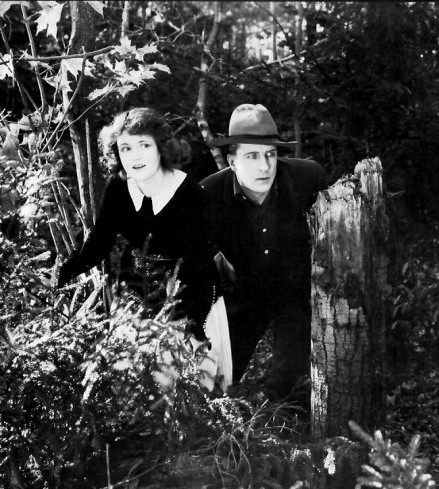
Marguerite Clark-Harrison Ford "Easy to get" 1920, de Walter Edwards.
4 notes
·
View notes
Text
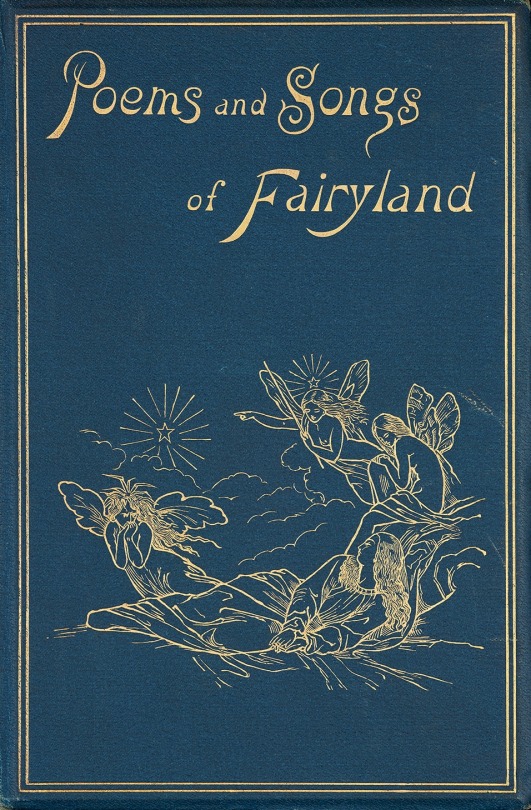
Arthur Edward Waite, Songs and poems of fairyland (London: Walter Scott, 1888)
480 notes
·
View notes
Photo
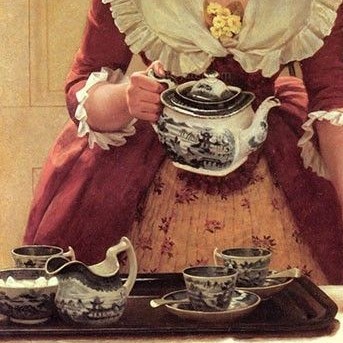
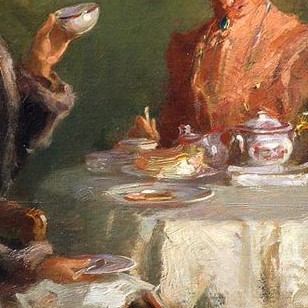
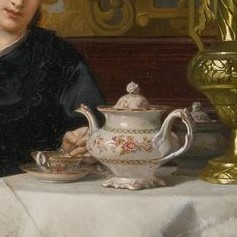
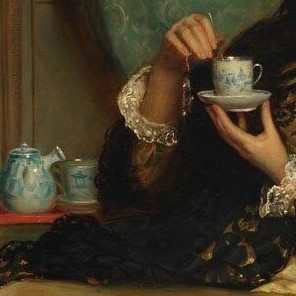

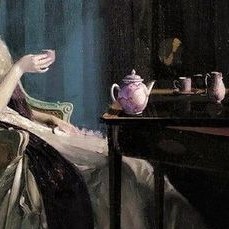

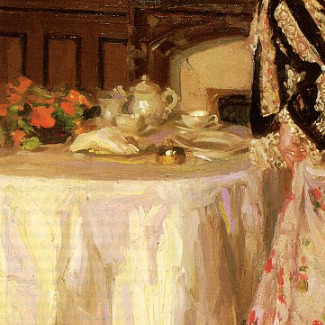
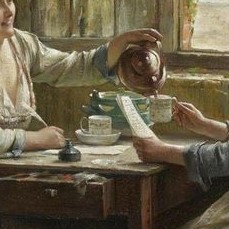
Art Details Series: Afternoon Tea
|| George Dunlop Leslie, Walter Granville-Smith, David Emile Joseph de Noter, John Bagnold Burgess, Valentine Cameron Prinsep, Charles Bittinger, Henry Salem Hubbell, Joseph Caraud, Edward Portielje ||
#aesthetic#art#women#women in art#art details#art detail#light academia#dark academia#20th century art#19th century art#18th century art#George Dunlop Leslie#Walter Granville-Smith#David Emile Joseph de Noter#John Bagnold Burgess#Charles Bittinger#Henry Salem Hubbell#Edward Portielje#Valentine Cameron Prinsep#Joseph Caraud#art series
913 notes
·
View notes
Text
Inside William’s Next Act: Tatler’s May issue goes behind the scenes as the Prince of Wales is rising above the noise — and playing the long game
The burden of leadership is falling upon Prince William, but as former BBC Royal Correspondent, Wesley Kerr OBE, explains in Tatler’s May cover story, the future king is taking charge
By Wesley Kerr OBE
21 March 2024
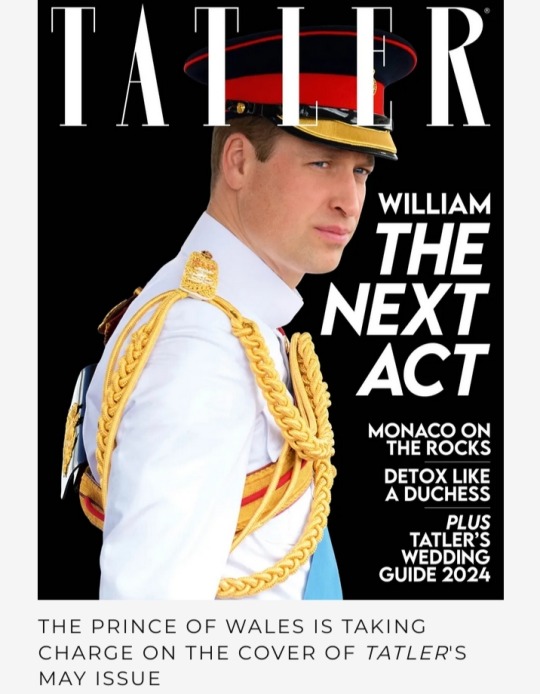
When I first met Prince William in 2009, he asked me if I could tell him how he could win the National Lottery.
It was a jokey quip from someone who has since become the Prince of Wales, the holder of three dukedoms, three earldoms, two baronies and two knighthoods, and heir to the most prestigious throne on earth.
He was, of course, being relatable; I was representing the organisation that had allocated Lottery funding towards the Whitechapel Gallery and he wanted to put me at ease.
William is grand but different, royal but real.
At 6ft 3in, he has the bearing and looks great in uniform after a distinguished, gallant military career.
He will be one of the tallest of Britain’s kings since Edward Longshanks in the 14th century and should one day be crowned sitting above the Stone of Scone that Edward ‘borrowed.’
William, by contrast, has a deep affinity with Scotland and Wales, having lived in both nations and gained solace from the Scottish landscape after his mother died.
He’s popular in America and understands that the Crown’s relationship to the Commonwealth must evolve.
The Prince of Wales has long believed that ‘the Royal Family has to modernise and develop as it goes along, and it has to stay relevant’, as he once said in an interview.
He seeks his own way of being relatable, of benefitting everybody, in the context of an ancient institution undergoing significant challenge and upheaval, as the head of a nation divided by hard times, conflicts abroad, and social and political uncertainty.
We might recognise Shakespeare’s powerful line spoken by Claudius in Hamlet: ‘When sorrows come, they come not single spies, but in battalions.’
With the triple announcement in January and February of the Princess of Wales’s abdominal surgery and long convalescence, of King Charles’s prostate procedure and then of his cancer diagnosis, the burden of leadership has fallen on 76-year-old Queen Camilla and, crucially, on William.
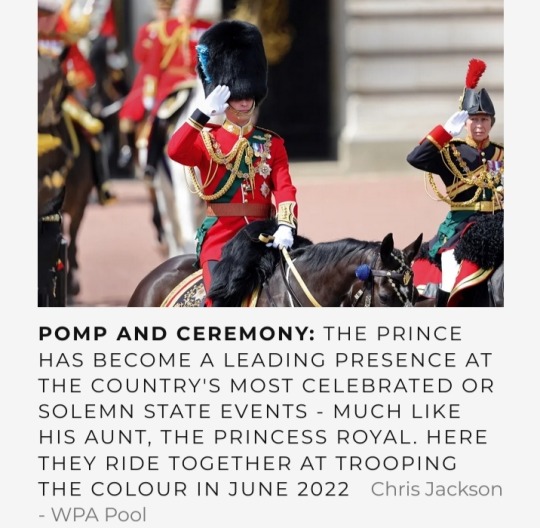
The Prince of Wales’s time has come to step up; and so he has deftly done.
In recent months, we have seen a fully-fledged deputy head of state putting into practice his long-held ideas, speaking out on the most contentious issue of the day and taking direct action on homelessness.
Last June, he unveiled the multi-agency Homewards initiative with the huge aspiration of ending homelessness, backed with £3 million from his Foundation to spearhead action across the UK.
He is consolidating Heads Together, the long-standing campaign on mental health, and fundraises for charities like London’s Air Ambulance Charity.
He was, of course, once a pilot for the East Anglian Air Ambulance services – a profession that had its downside: seeing people in extremis or at death’s door, he found himself ‘taking home people’s trauma, people’s sadness.’
Tom Cruise was a guest at the recent London’s Air Ambulance Charity fundraiser, William’s first gala event after Kate’s operation.
And more stardust followed when William showed that, even without his wife by his side, he could outclass any movie star at the Baftas.
There’s also his immense aim of helping to ‘repair the planet’ itself with his Earthshot Prize: five annual awards of £1 million for transformative environmental projects with worldwide application.
This project has a laser focus on biodiversity, better air quality, cleaner seas, reducing waste and combating climate change. Similar aims to his father; different means to achieve the goal.
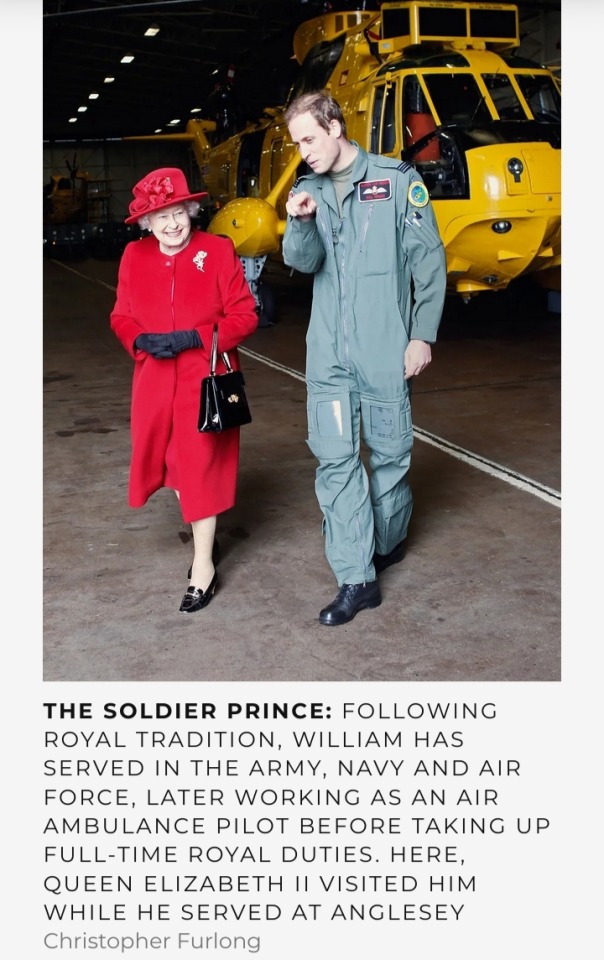
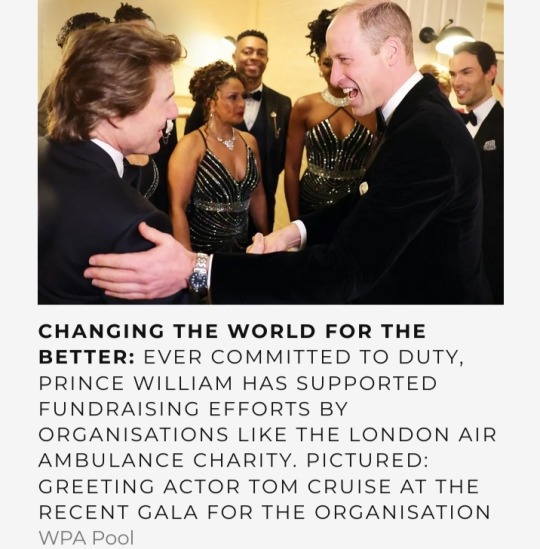
On the issue which has caused huge convulsions – the Middle East conflict – William’s 20 February statement from Kensington Palace grabbed attention.
He said he was ‘deeply concerned about the terrible human cost of the conflict since the Hamas terrorist attack on 7 October. Too many have been killed.’
There were criticisms – along the lines of ‘the late Queen would have never spoken out like this’ or ‘what right does he have to meddle in politics?’ – but it was hard to disagree with his carefully calibrated words.
His call for peace, the ‘desperate need’ for humanitarian aid, the return of the hostages.
The statement was approved by His Majesty’s Government, likely cleared with the King himself at Sandringham the previous weekend and also backed by the chief rabbi of Great Britain, Sir Ephraim Mirvis.
Indeed, William and Catherine had immediately spoken out on the horrors of 7 October.
William followed up the week after his Kensington Palace statement by visiting a synagogue and sending a ‘powerful message’, according to the chief rabbi, by meeting a Holocaust survivor and condemning anti-Semitism.
This is rooted in deep personal conviction following William’s 2018 visit to Israel and the West Bank, says Valentine Low, the distinguished author of Courtiers and The Times’s royal correspondent of 15 years, who was on that 2018 trip.
‘William was so moved by his visit to Israel and the West Bank, he found it very affecting, and he was not going to drop this issue – he was going to pay attention to it for the rest of his life,’ says Low.
‘He must feel that… not to say something on the most important issue in the world [at that moment] would be a bit odd if you feel so strongly about it.’
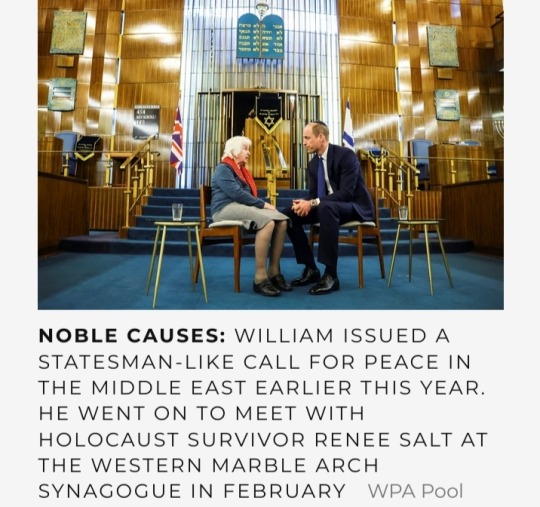
There was concern from some commentators about politicising the monarchy, but this rose above the particulars of party politics.
As Prince of Wales, like his father before him, there is perhaps space to speak out sparingly on carefully chosen issues.
On this occasion, his views were in line with majority public opinion.
On homelessness, news came that same week that William was planning to build 24 homes for the homeless on his Duchy of Cornwall estate.
‘William’s impact is very personal,’ says Mick Clarke, chief executive of The Passage, a charity providing emergency accommodation for London’s homeless.
‘Two weeks before Christmas, the prince came to our Resource Centre in Victoria for a Christmas lunch for 150 people.
He was scheduled to stay for an hour, to help serve, wash up, and talk to people.
He ended up staying for two and a quarter hours, during which time he went from table to table and spoke to every single person.’
Clarke continues:
‘William has an ability to listen, talk and to put people at ease. During the November 2020 lockdown, he came on three separate occasions to help.
It gave the team a boost that he took the time; it was his way of saying: “I support you; you’re doing a great job.”’
Seyi Obakin, chief executive of Centrepoint, one of the prince’s best-known causes, adds:
‘People associate his patronage with the big moments like the time he and I slept under Blackfriars Bridge.
The things that stick with me are smaller in scale and the more profound for it – in quieter moments, away from the cameras, where he has volunteered his time.’
It is a different approach from the King’s.
As Prince of Wales, he was involved in the minutiae of dozens of issues at any one time, working into the night to follow up on emails, crafting his speeches, writing or dictating notes.
Add to that much nationwide touring over 40 years (after he left active military service in 1976), fitting in multiple engagements, often being greeted formally by lord lieutenants.
This is not William’s style. He has commended his father’s model, but he does things his own way.
Although patronages are under review, William has up till now far fewer than either his father or his grandparents.
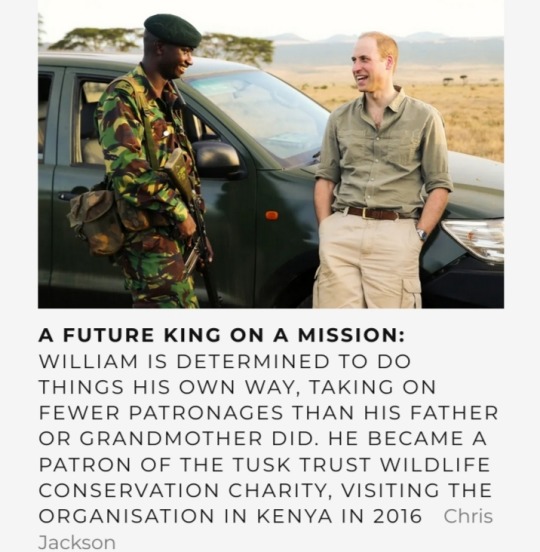
Charles is sympathetic to William’s approach and his desire to make time with his young family sacrosanct.
They are confidantes, attested by the night of Queen Elizabeth’s death.
They were both at Birkhall with Camilla, reviewing funeral arrangements while the rest of the grieving family were nearby at Balmoral, hosted by the Princess Royal.
Charles has had almost six decades in public life and is the senior statesman of our time, with even longer in the spotlight than Joe Biden.
After Eton and St Andrew’s University, where he met Catherine, William served in three branches of the military between 2006 and 2013, finishing as a seasoned and skilled helicopter rescue pilot.
His later employment as an air ambulance pilot stopped in 2017, when he became a full-time working royal.
At that time, not so long ago – with Harry unmarried, Andrew undisgraced, and Philip and Elizabeth still active – William shared the spotlight.
Now, after the King, he’s the key man.
He can look back on the success of his first big campaign initially launched with his wife and brother in 2016: Heads Together.
‘We are delighted that Prince William should have become such a positive and sympathetic advocate for mental health through his Heads Together initiative and now well-established text service, Shout, among other projects,’ says the longtime CEO and founder of Sane, the remarkable Marjorie Wallace CBE.
‘It is not always known that he follows in the footsteps of his father, the King, whose inspiration and vision were vital in the creation of our mental health charity Sane.
As founding patron, he was instrumental in establishing our 365-days-a-year helpline and was a remarkable and selfless support to me in setting up the Prince of Wales International Centre for Sane Research.’
'Indeed,' says Wallace, 'this is where Prince William echoes the work of his father, showing the same ‘understanding and compassion for people struggling through dark and difficult times of their lives and has done much to raise awareness and encourage those affected to speak out and seek help.
We owe a huge debt to His Majesty and the Prince of Wales for their involvement in this still-neglected area.’
Just as I saw all those years ago at that early solo engagement in Whitechapel, William still approaches his public duties with humour and fun.
‘He defuses the formality with jocularity,’ says Valentine Low, citing two public events in 2023 that he witnessed.
In April last year, while on a visit to Birmingham, William randomly answered the phone in an Indian restaurant he was being shown around and took a table booking from a customer – an endearing act of spontaneity.
On his arrival later that day, the unsuspecting diner was surprised to be told exactly whom he had been talking to.
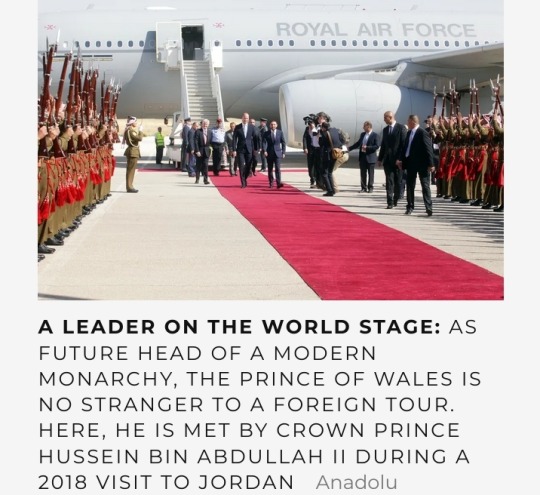
In October, Low reported, William ‘unleashed his inner flirt as he hugged his way through a visit with Caribbean elders [in Cardiff] to mark Black History Month.
As he gave one woman a hug – for longer than she expected – he joked: “I draw the line at kissing.”
And while posing for a group photograph, he prompted gales of laughter when he quipped: “Who is pinching my bottom?”’
Low believes that when William eventually becomes king, he will be more ‘radical’ than his father but wonders if people will respond to ‘call me William’ when ‘the whole point of the Royal Family is mystique and being different.’
However, William has thought deeply about his current role and is prepared for whatever his future holds.
For now, there is a decision to be made on Prince George’s secondary schooling. It’s said that five public schools are being considered, all fee-paying.
Eton is single-sex and boarding but close to home. Marlborough (Catherine’s alma mater) is co-ed and full boarding. And Oundle, St Edward’s Oxford and Bradfield College (close to Kate’s parents) are co-ed with a mix of boarding and day.
As parents, William and Catherine aspire to raise their children ‘as good people with the idea of service and duty to others as very important’, William said in an interview with the BBC in 2016.
‘Within our family unit, we are a normal family.’ Which may be one reason why he is so resistant to their privacy being compromised either by the media or close family members.
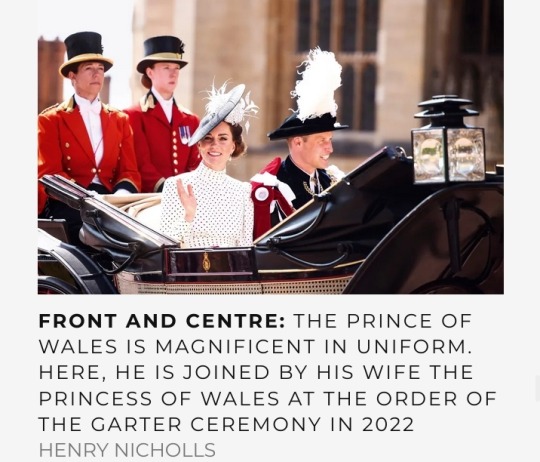
The 19th-century author Walter Bagehot wrote:
‘A family on the throne is an interesting idea also. It brings down the pride of sovereignty to the level of petty life… a princely marriage is the brilliant edition of a universal fact, and, as such, it rivets mankind.’
If hereditary monarchy is to survive, it must beguile us but also demonstrate its utility, that it is a force for good.
William said in that 2016 interview, ‘I’m going to get plenty of criticism over my lifetime,’ echoing Queen Elizabeth II’s famous Guildhall speech in 1992 ‘that criticism is good for people and institutions that are part of public life. No institution – city, monarchy, whatever – should expect to be free from the scrutiny of those who give it their loyalty and support, not to mention those who don’t.’
William saw close up his mother’s ability to bring public focus and her own personal magnetism to any subject or cause she focused on.
He admires his father’s work ethic, the way he ‘really digs down,’ sometimes literally (I understand that gardening is giving the King solace during his cancer treatment).
But the biggest influence for William was Her late Majesty, as he said on her 90th birthday.
As an Eton schoolboy, William made weekend visits to the big house on the hill, being mentored by Granny rather as she had been tutored in the Second World War by the then vice-provost of Eton, Sir Henry Marten.
William said in 2016:
‘In the Queen, I have an extraordinary example of somebody who’s done an enormous amount of good and she’s probably the best role model I could have.’
That said, his aim was ‘finding your own path but with very good examples and guidance around you to support you.'
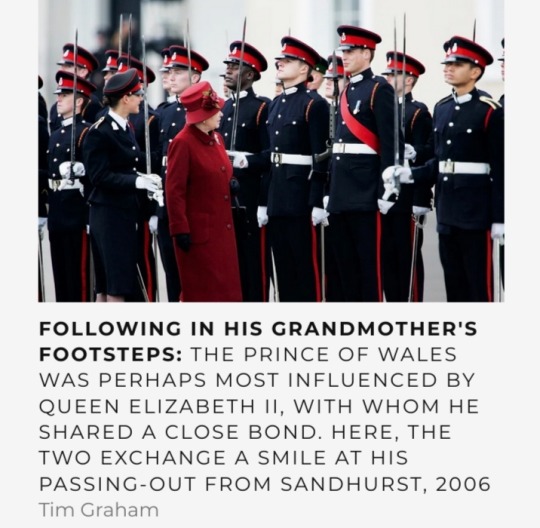
Queen Elizabeth II had a brilliant way of rising above the fray and usually being either a step ahead of public opinion or in tune with it.
If you are at the helm of affairs in a privileged hereditary position, your duty is to serve and use your pulpit for the benefit of others.
In a democracy, monarchy is accountable.
The scrutiny is intense, with an army of commentators paid for wisdom and hot air about each no-show, parsing each announcement, interpreting each image.
William takes the long view. He has ‘wide horizons,’ says Mick Clarke.
‘There are so many causes that are more palatable and easier to achieve than ending homelessness, but his commitment and drive are 100 per cent.’
The prince seeks a different way of being royal in an ancient institution that must move with the times. His task? To develop something modern in an ever-changing world.
He faces all sorts of new issues – or old issues in new guises.
Noises off from within the family don’t help – Andrew’s difficulties, or the suggestions of prejudice from Montecito a couple of years ago (now seemingly withdrawn), which prompted William’s most vehement soundbite: ‘We’re very much not a racist family.’
William is maybe a new kind of leader who can keep the monarchy relevant and resonant in the coming decades.
Queen Elizabeth II is a powerful exemplar and memory, but she was of her time. William is his own man.
He must overcome and think beyond ‘the unforgiving minute.’
Indeed, he could seek inspiration in Rudyard Kipling’s poem, If.
If you can force your heart and nerve and sinew
To serve your turn long after they are gone,
And so hold on when there is nothing in you
Except the Will which says to them: ‘Hold on!’
If you can talk with crowds and keep your virtue,
Or walk with Kings—nor lose the common touch[…]
Yours is the Earth and everything that’s in it,
And—which is more—you’ll be a Man, my son!
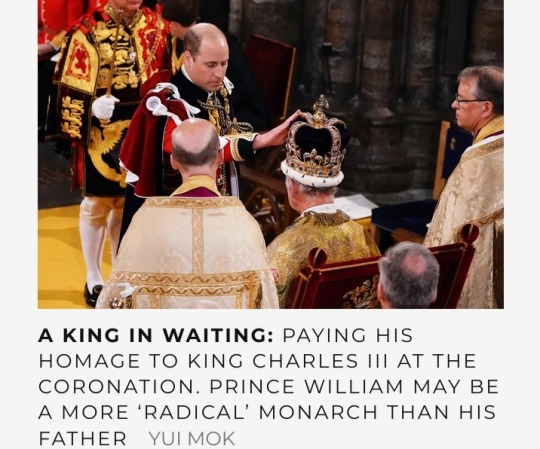
This article was first published in the May 2024 issue, on sale Thursday, 28 March.
#Prince William#Prince of Wales#British Royal Family#Wesley Kerr OBE#Edward Longshanks#Homewards#Heads Together#London’s Air Ambulance Charity#East Anglian Air Ambulance#Tom Cruise#BAFTAS#Earthshot Prize#Kensington Palace#King Charles III#Sir Ephraim Mirvis#Valentine Low#Duchy of Cornwall estate#The Passage#Centrepoint#Birkhall#Sane#Marjorie Wallace CBE#Shout#Balmoral#Prince George#Walter Bagehot#Sir Henry Marten#Rudyard Kipling#If
146 notes
·
View notes
Text

Cupid and Psyche - Palace Green Murals - Cupid Flying away from Psyche (1881) by Sir Edward Burne-Jones and Walter Crane.
Oil painting.
A scene from William Morris' 'The Earthly Paradise'.
Photo by Birmingham Museums Trust, licensed under CC0.
120 notes
·
View notes
Text
what are you guys writing

#whats stede doing with these fellows#edward we gotta go to the lab#ed cmon#our flag means death#ofmd#walter white#super silly stuff my dudes#stede bonnet#the gentleman pirate#edward teach#ed teach#blackbeard#oh yeah well my name is stede bonnet yo my husband is edward teach yo uhuh he told me everything
409 notes
·
View notes
Text
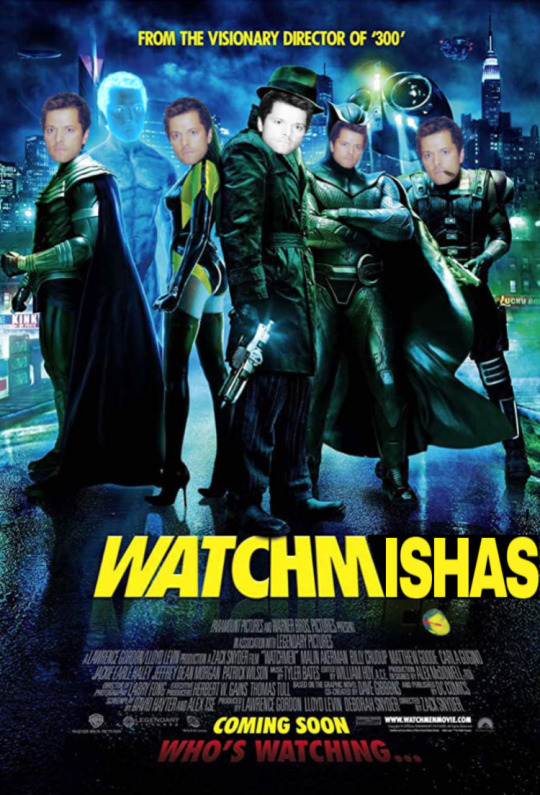
Happy April 1st Watchmenblr
#mishapocalypse#misha collins#april fools day#watchmen#watchmen 2009#watchmen movie#rorschach#walter kovacs#walter joseph kovacs#adrian veidt#ozymandias#ozymandias watchmen#doctor manhattan#dr. manhattan#dr manhattan#laurie juspeczyk#laurie jupiter#silk spectre#silk spectre ii#dan dreiberg#daniel dreiberg#nite owl#nite owl ii#eddie blake#edward blake#the comedian
25 notes
·
View notes
Text

Watchmen
#watchmen#nite owl#daniel dreiberg#silk spectre#laurie juspeczyk#doctor manhattan#rorschach#walter kovacs#the comedian#edward blake#ozymandias#adrian veidt#dc comics#comics#comic art#pinup
123 notes
·
View notes
Text

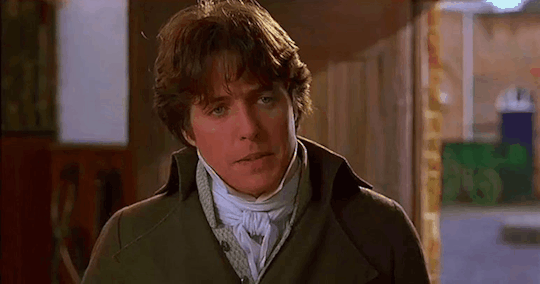


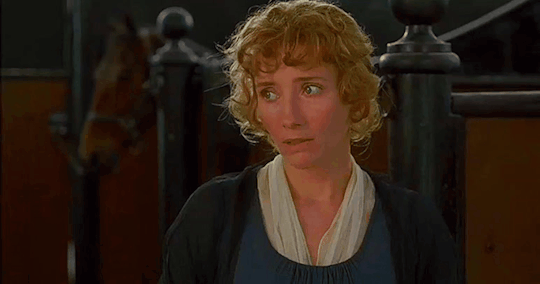
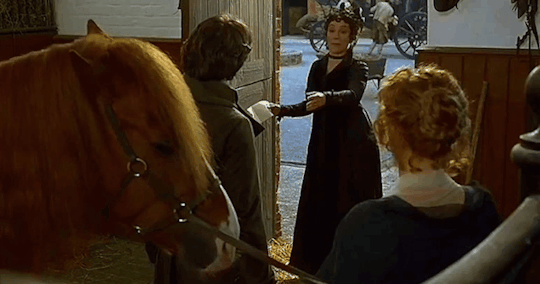


SENSE AND SENSIBILITY (1995)
dir. ang lee
#sense and sensibility 1995#jane austen#costume drama#period drama#perioddramaedit#perioddramagif#elinor dashwood#edward ferrars#fanny dashwood#emma thompson#hugh grant#harriet walter#my gifs#mine
43 notes
·
View notes
Text
We don't talk enough about the Petherbridge/Walter adaptations of the Wimsey/Vane novels.
(Well, we probably talk EXACTLY enough about Gaudy Night, which is really pretty bad, but besides for that...)
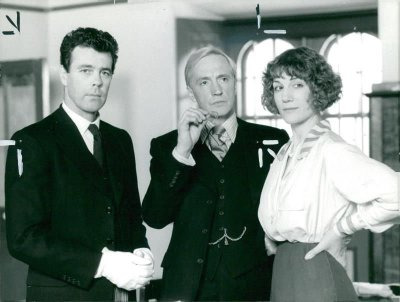
(Sorry, just a warning, Richard Morant as Bunter is fine but I won't have much to say about him here. I just really like this picture.)
The casting is basically perfect, especially Harriet Walter as Harriet Vane. I no longer see the book character in any other way- the only notable difference is that in the book she's noted as having a deep voice, but Walter's has a distinctive enough tone that I think it works regardless. She is just so, so, so good- captures the character beautifully, sells everything she does whether mundane or ridiculous (probably the best/most realistic reaction of someone finding a body I have EVER seen in Have His Carcase), makes the most of every limited minute she's on screen in Strong Poison and leaves her mark every minute that she isn't... and she looks AMAZING doing all of it. Just perfect, could not imagine better casting.
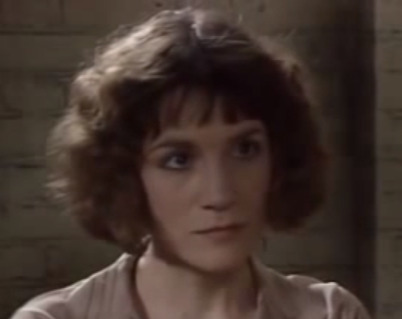
Edward Petherbridge I don't hold up to that level of perfection- I think that, try as he might, he's not really able to capture Wimsey's dynamism (possibly because he's a bit too old for the role) and is a bit overly caricatured in many of his mannerisms. But overall he does a pretty good job, in addition to looking quite a lot like how I'd imagined Wimsey- but in particular, I think he does a really lovely job of selling a lot of the emotion that he has to convey in some scenes that feel like they SHOULDN'T be adaptable from the book- specifically the scenes of him and Harriet. Him proposing to Harriet, him being disappointed when she (completely reasonably) turns him down... those shouldn't work on screen with real humans rather than in Sayers's calculated prose, but it DOES work and in no small part because he's great at selling Wimsey's feelings as being genuine even when his actions seem over the top. And, of course, Harriet Walter sells her end of the scenes right back. All in all, I think I have mixed feelings about Petherbridge as Lord Peter Wimsey the detective, but I'm a fan of him as Peter, the man who has feelings for Harriet.
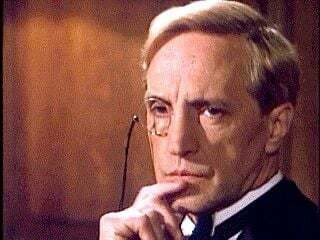
Overall, though, both are, I think, very successful in capturing these characters- the fact that they take these people who even in the book can sometimes push the boundaries of likeability (which to be clear, is part of what I love about reading them) and make them eminently watchable is a great achievement. And also, in addition to their really looking like their characters individually, they're very well matched as a pair in the way that one pictures them from the book. They're even of very similar height and build, which we know is canonically true from Gaudy Night, and thus at least a somewhat relevant element of their dynamic.
Now, the adaptations are very uneven, and that's even without talking about Gaudy Night because, while it has about as good a rendition of the punting scene as I think we were ever going to get, most of the rest of it is crap and massively expands on what I think are serious problems to Peter and Harriet's relationship that the series as a whole had (not to mention cutting the character of St George, which is a travesty). None of the adaptations are perfect, and mess with aspects of their relationship in negative ways- for example, the ending of Strong Poison is exactly backward in a really awful way. I'll get back to this.
But when the show gets the two of them right, it gets them RIGHT, even when it's adapting Sayers's text/creating new dialogue. There are scenes in this one that I love almost as much as the canon text, like this one:
I don't think any of this is in the book, and there are things that happen here that I don't think Sayers would have ever written. But at the same time, a combination of the dialogue and the actors makes it COMPLETELY believable as these two people, and it captures a moment that is just really key for Peter as he faces his limitations and his feelings- something that in the book is conveyed through a lot of internal narrative on Peter's part that would be impossible to adapt as is, but that in the world of the show needed to happen in a much more visual and narrative way. Not all of the dialogue that this series chooses to fill in those gaps works, but even when it doesn't the actors do their best to sell the heck out of it, and when the dialogue DOES work it is seriously brilliant.
Probably my favorite of the adaptations is Have His Carcase, and scenes like this one are a big part of the reason why:
They change the location, but otherwise it's EXTRAORDINARILY faithful to the equivalent scene in the book, and honestly it shouldn't have worked with real people doing it and yet it does. It's just acted perfectly, given just enough arch and silly humor (particularly with the spinning door) that we don't attempt to take it too seriously, while also conveying the relevant emotions so well. The actors in the scene through only their faces and ways of speaking convey subtext that Sayers, in the book, conveyed a lot later on as actual text in the characters' thoughts, and there's something pretty great about that.
Other Have His Carcase scenes are less good (the dance scene is mediocre at best, I think), but if there's another Have His Carcase scene that I think illustrates how great Walter and Petherbridge are at selling the human sides of their characters, it's That Argument- seen here:
The Argument is a pale imitation of that in the book- the one in the book is, in fact, probably unadaptable as is- but it is still just so good because the actors are so good at selling it. Walter is just brilliant in the role and utterly inhabits it while also imbuing it with her own spin, and makes us feel Harriet's pain- and Petherbridge, through some relatively subtle facial expressions and reactions, is able just as well to make US understand what all of this means to him and how he feels. It's actually really remarkable that, just like how Sayers writes a relationship dynamic that only feels like it works because she's the one who wrote it that very specific way, this scene feels like it only works because these two actors play it in this specific way. Could two other actors do it? Very possibly, but it would feel super different and I wonder if it would feel this authentic. (I do want to note though that this scene made me really wish that we'd seen a Frasier-era David Hyde Pierce in the role of a younger and spryer, but equally posh, witty, and vulnerable, Wimsey. It just gave me vibes of something that he'd do beautifully.)
Now, as I said above, this doesn't get EVERYTHING right. In fact, quite a lot of their relationship ends up going pretty wrong- as I think a major mistake is their throughline which emphasizes Peter's continued pursuit of Harriet as not just reiterating his interest to make it clear that he hasn't changed his mind, but actively taking advantage of moments and situations in a romantic sense, taking a much more specific role in engaging with her physically, commenting on her appearance, saying how difficult it is for him to NOT pursue her more, etc. It makes the whole thing feel a lot more cat-and-mouse rather than a budding relationship of equals, and one where Peter acknowledges the whole time that they HAVE to be equals for a) Harriet to feel comfortable with him and b) them to be good together. In fact, however good the Argument above is, it's kind of undercut by this very pattern- he makes the book's point about him treating his feelings like something out of a comic opera, but he also at that point in the story has had a few much more oppressively serious scenes with her that clearly make her uncomfortable- nothing like anything in a comic opera. It's like the show misses the point a little.
I think the place where this really starts is at the end of Strong Poison. (I could see an argument to be made that it starts earlier, in a few smaller nuances of their jailhouse scenes, but I like those enough that I choose not to read into them too much lol.) After what I think is a great addition to the final jailhouse scene (one that I loved so much I repurposed it for a fic)- "it's supposed to be about love, isn't it" and some excellent reactions from Petherbridge- Harriet goes to court, her charges are dismissed, and unlike in the book, when it's Wimsey who leaves first (which Eiluned and Sylvia point out is a sign of his decency in not waiting for Harriet to thank him), here Wimsey is the one who watches as Harriet rejects him and walks away from him- the beginning of the chase. But nothing about their relationship is meant to be a chase! It's so frustrating to watch as that proceeds to be a continuing issue to a limited degree in Have His Carcase (where it's at least balanced by enough good moments that it doesn't matter so much) and to a MASSIVE, genuinely uncomfortable degree in Gaudy Night.
The only praise I will give it is that while the punt scene in the book is unfilmable, I think this adaptation did its best here and it's pretty good.
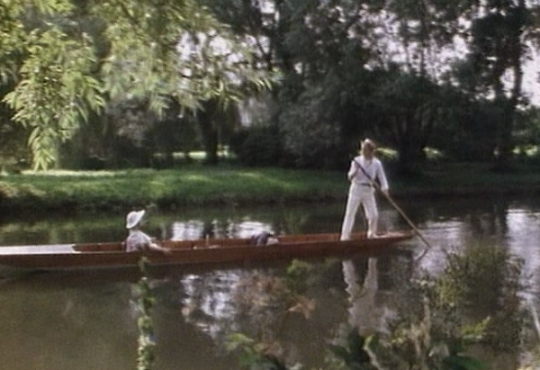
I'm not going to spend much time talking about Gaudy Night otherwise, because I'd need all day for it and also I'd probably need to rewatch it to make sure I get the details right and I have zero interest in doing that, but the way that it has Wimsey imposing himself and his feelings/hopes on Harriet to a really ridiculous degree, in a way that he never, ever does in the book, is just so so discomfiting and makes me feel terrible for Harriet. She doesn't deserve that. If I recall correctly, in that scene at the dance at the beginning, she's so happy just being with him and then he's all "oh so this means you want to marry me" and she just droops. He's so aggressive!
And that's what makes the worst part so bad, because not only does this miniseries not depict Wimsey's apology as the book does- one of the best scenes in a book full of brilliant scenes- it would actually be weird if it did, because this show doesn't imply that there's ANYTHING for Wimsey to be apologizing for! In fact, unlike in the books where we see Wimsey growing and deconstructing the parts of himself that had been demanding of Harriet, in the series we only see him get more demanding- until finally he wins. It's honestly infuriating and I hate it- the actors do their best to sell it (and apparently they were given bad enough material that they actually had to rewrite some of it themselves, though I have mixed feelings about the results) but it is just massively disappointing. Basically the whole emotional journey between the two of them is not just neutered but twisted.
For all of my criticisms of the adaptations' all around approach to their relationship, I do have to reiterate- Walter and Petherbridge do a wonderful, wonderful job. (Especially Walter.) When they're given good material to work with, and even often when they aren't, they are able to sell it so well- and particularly in the case of Walter, I genuinely can't think of the character as anyone but her rendition now. She IS Harriet Vane for me. And, for all the flaws that the series has, that's something pretty dang special.
Anyway, for anyone who read through this whole thing and hasn't seen these adaptations, I DO recommend Strong Poison and Have His Carcase- but not Gaudy Night unless you're either really curious or a glutton for punishment. The first two, though, have very good supporting casts, are quite faithful plot wise (sometimes to a fault- another flaw is that they are really devoted to conveying the whole mystery with all its clues sometimes to the point of dragginess, but will drop sideplots like, for example, Parker and Mary- which is totally reasonable, but still vaguely disappointing as those sideplots tend to add some levity/characterization), and just generally are an overall good time. (Some standout characters for me are Miss Climpson in Strong Poison and Mrs Lefranc in Have His Carcase.) And, of course, the best part is seeing the little snippets of Peter and Harriet that come through- less so their journey, vs in the book where that's central, but so many scenes where we just see the two of them together as they are in that moment and it's so satisfying.
#peter wimsey series#peter wimsey#lord peter wimsey#harriet vane#dorothy l sayers#edward petherbridge#harriet walter#a dorothy l sayers mystery#as was apparently the official title of the petherbridge/walter series#my thanks to the as my wimsey takes me podcast people#for a) coming back and finishing have his carcase#which was very enjoyable plane listening#but also for mentioning the adaptation in one of the episodes and inspiring the rewatch that led to this post#also this blog is basically now a sayers blog just as it is a finnemore one i guess#which as i note is fitting due to my Dog Collar Theory#which is YET ANOTHER THING THAT THE GAUDY NIGHT ADAPTATION LEAVES OUT GRRRRRR#strong poison#have his carcase#gaudy night
38 notes
·
View notes
Text
Please god make the flags actually be based on americans that would be so fucking funny.
#it would be so funny if#lippmann = walter lippmann#piano man = billy joel (lmao)#iceman = richard kuklinski#doc = edward elmer smith (i couldnt think of anyone else)#albatross = ...idk i cant really think of anyone (i do have some in mind but none of them r american) lets just pretend i said a name here#AND THEN theres chuuya. some random japanese guy.#its also lowkey fitting bc they were all referred as “the young wolves” and theres chuuya. the king of sheep.
28 notes
·
View notes
Text


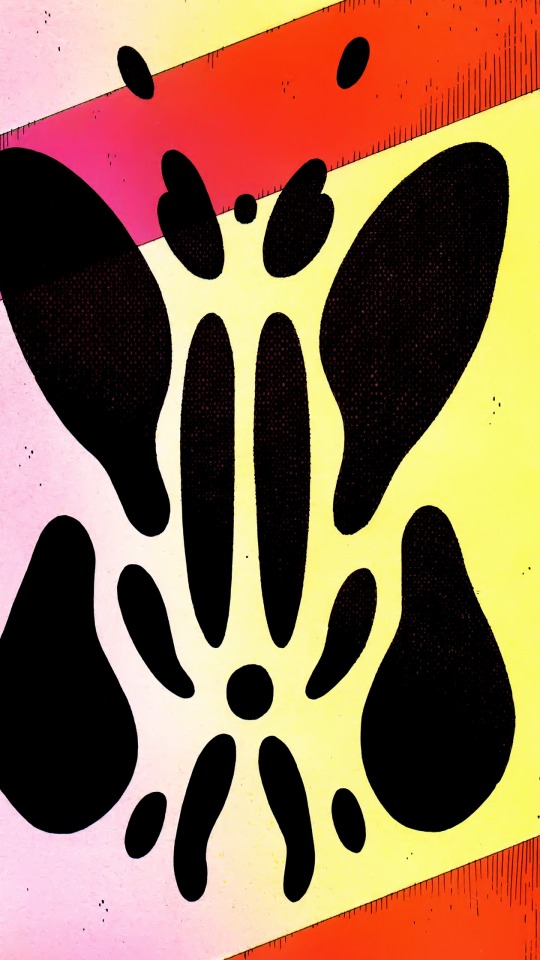
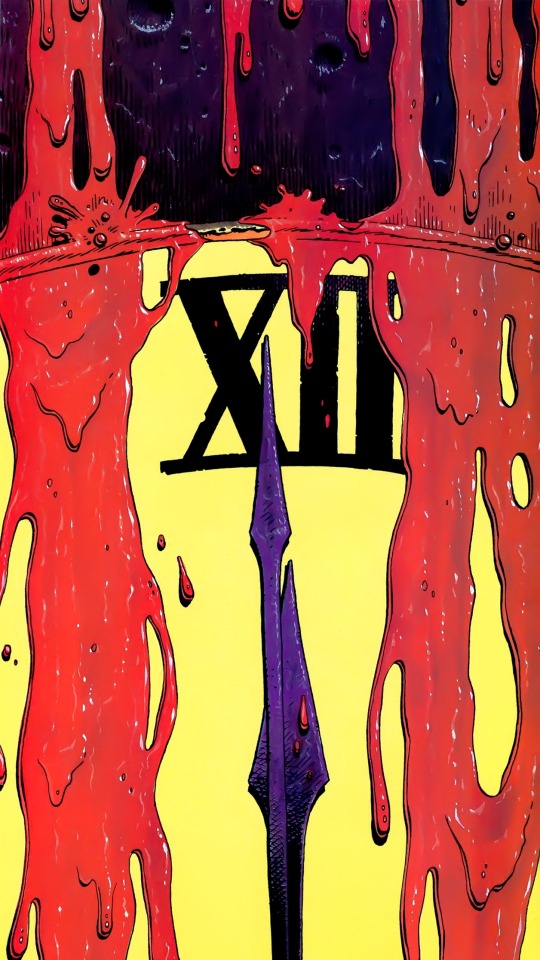



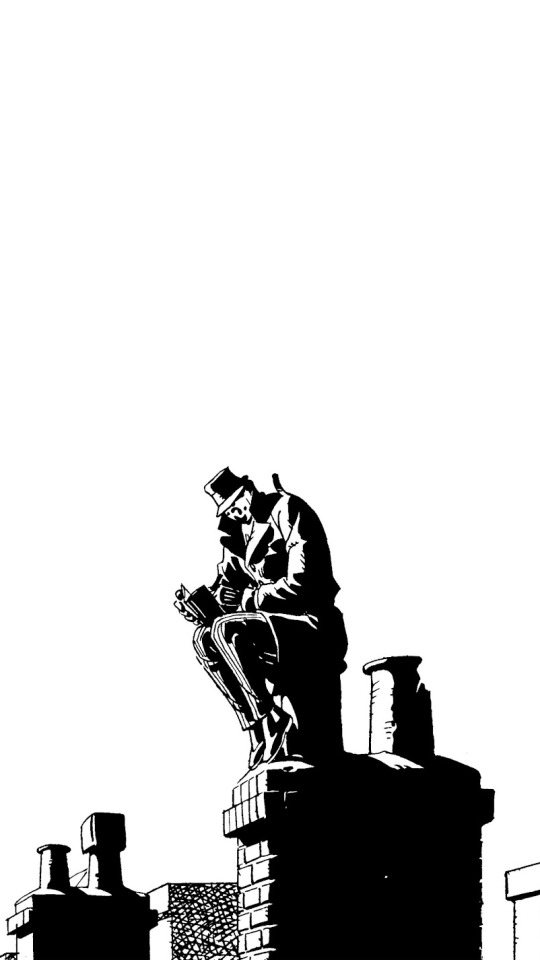
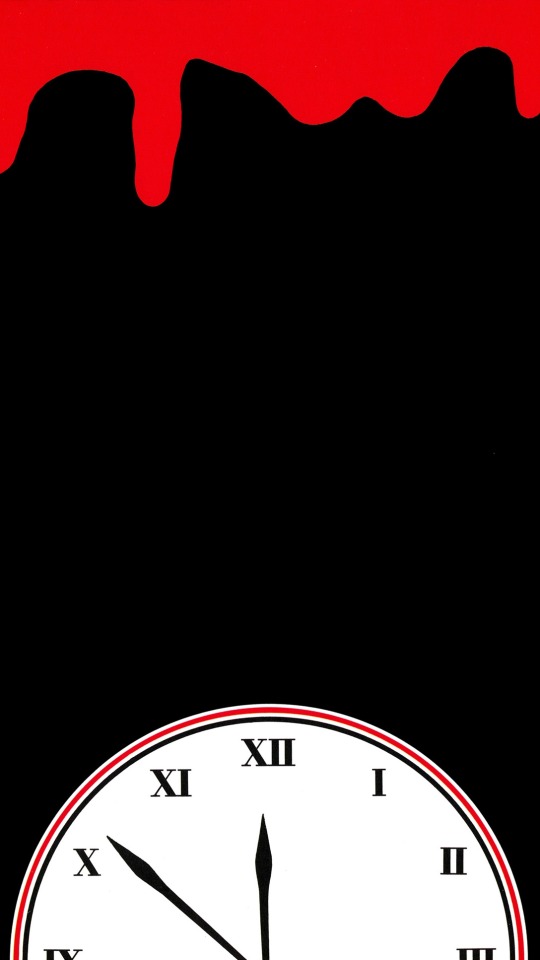
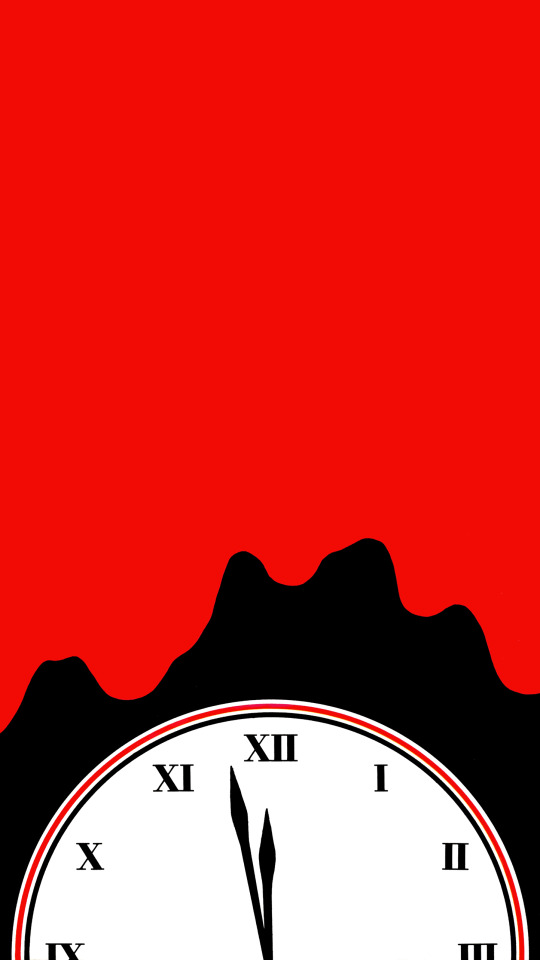
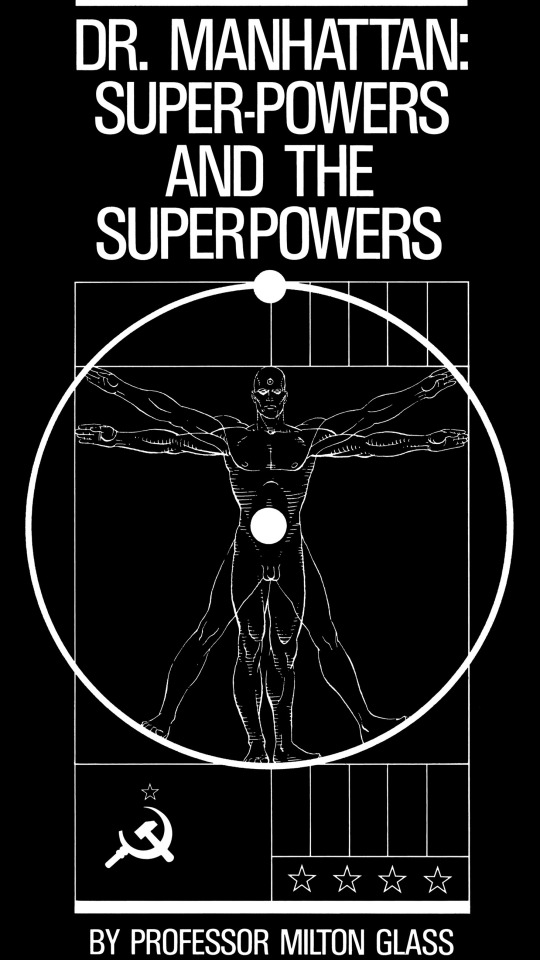
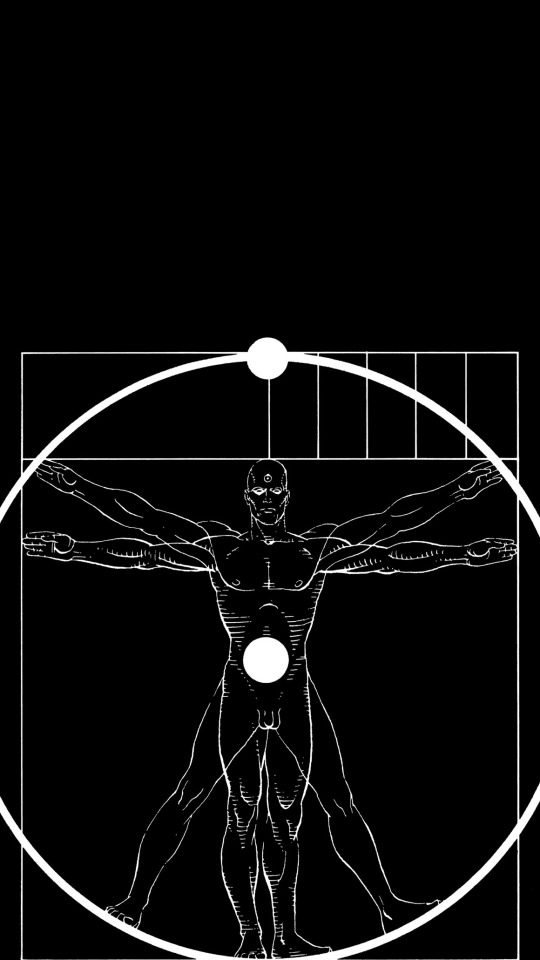
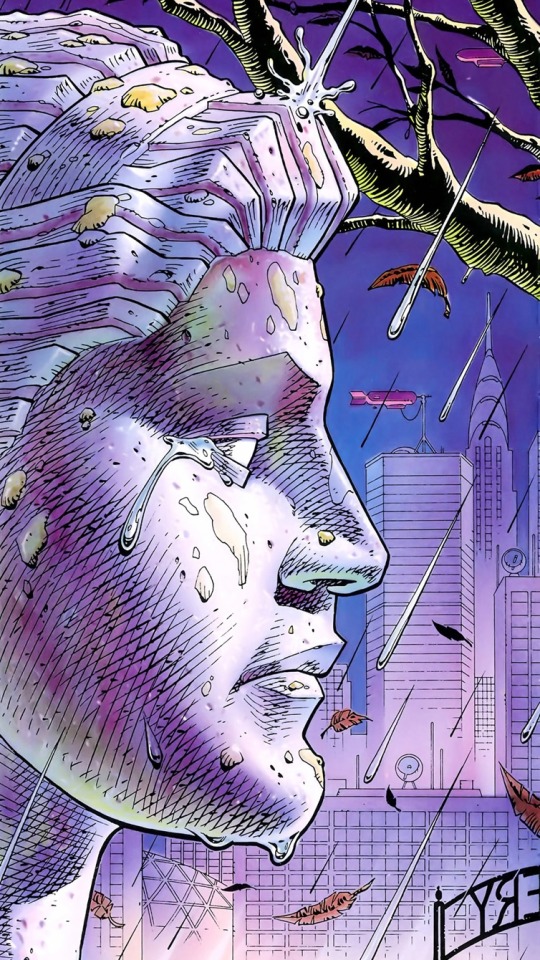

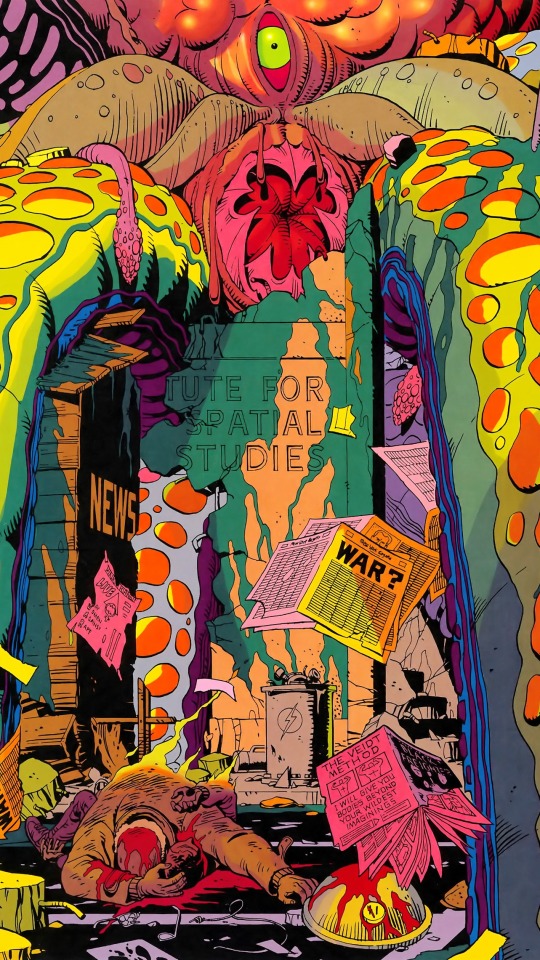

Watchmen (1986) lockscreens
#watchmen#watchmen lockscreen#watchmen lockscreens#watchmen comic#rorschach#walter joseph kovacs#dr. manhattan#jon osterman#laurie juspeczyk#laurie jupiter#silk spectre#edward blake#the comedian#daniel dreiberg#nite owl#adrian veidt#ozymandias#watchmen wallpaper#watchmen wallpapers#comic books#original comic#comics lockscreens#black and white lockscreens#lockscreen#lockscreens#wallpapers#wallpaper
21 notes
·
View notes
Text
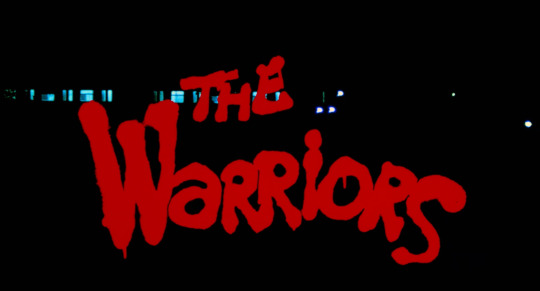
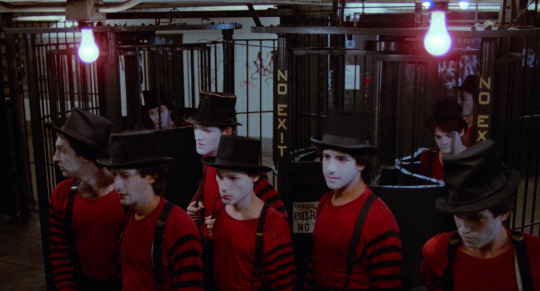
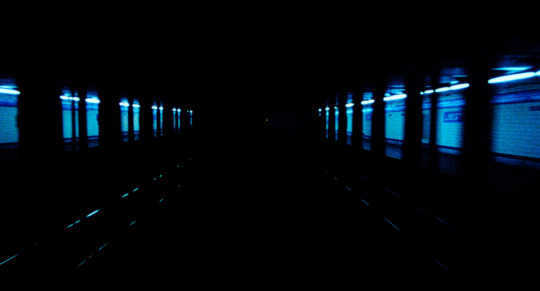
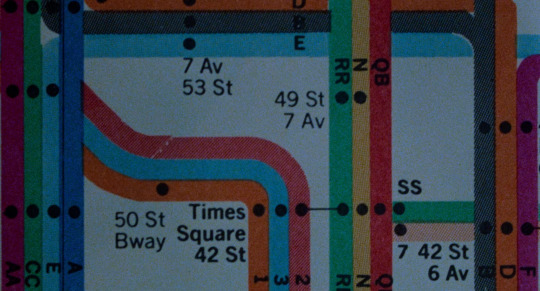
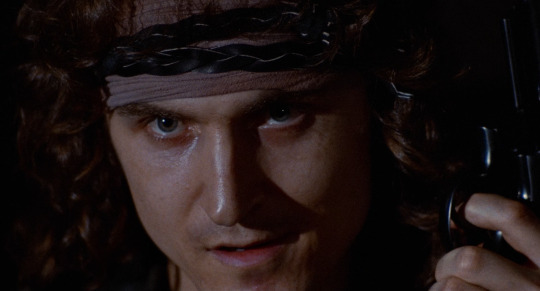
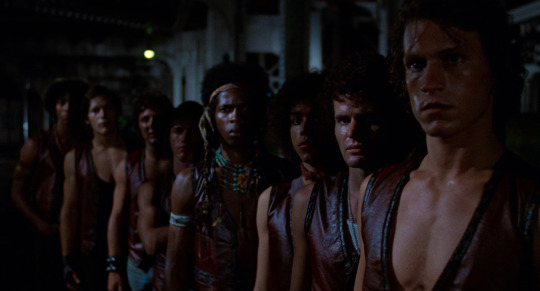
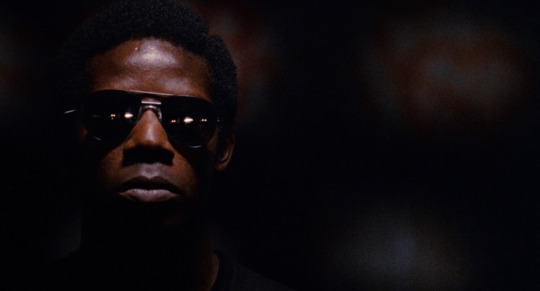


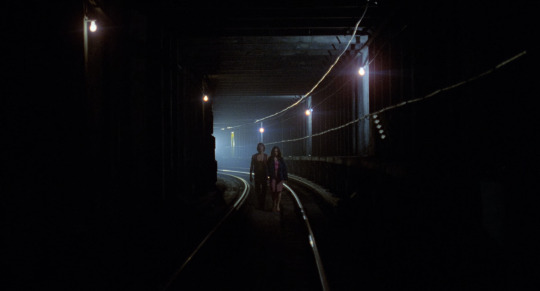


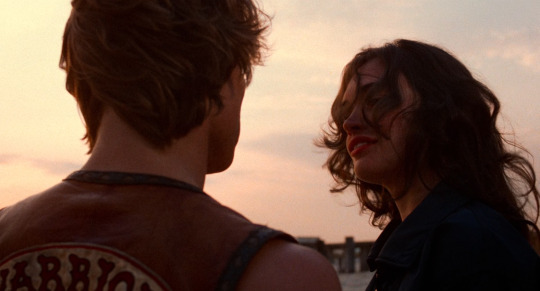

The Warriors (1979)
#The Warriors#Walter Hill#Michael Beck#David Patrick Kelly#Edward Sewer#Deborah Van Valkenburgh#70s#movie caps
20 notes
·
View notes
Photo
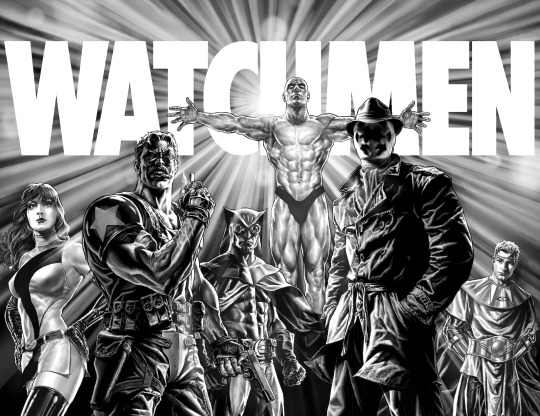
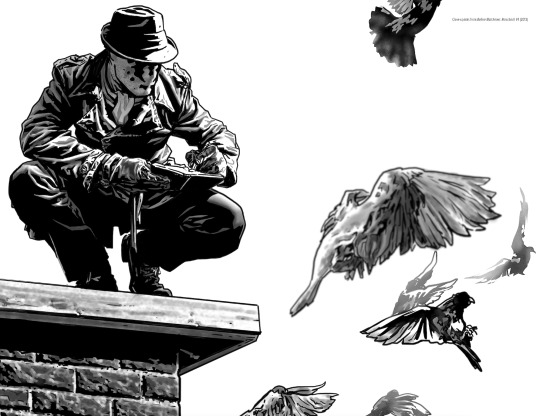

Rorschach & the Watchmen by Lee Bermejo
#rorschach#watchmen#dc comics#dr manhattan#ozymandias#nite owl#the comedian#silk spectre#silk spectre II#jon osterman#walter kovacs#laurie juspeczyk#adrian veidt#edward blake#dc#before watchmen#comic book art#lee bermejo
392 notes
·
View notes
Photo

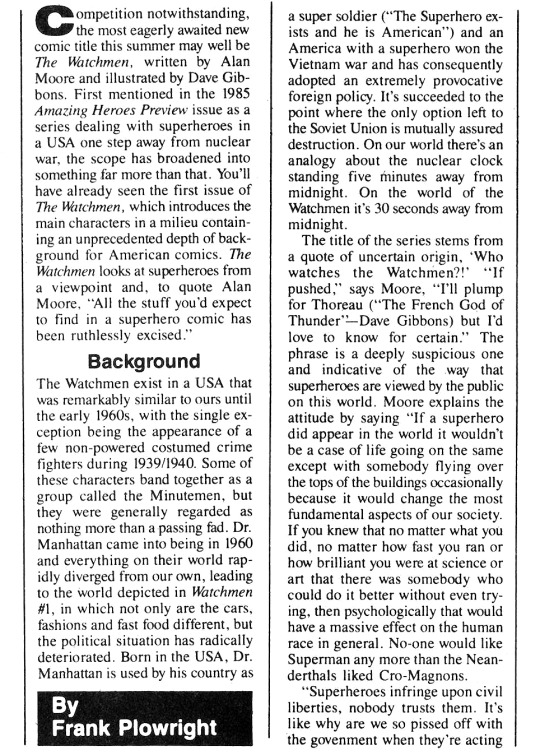
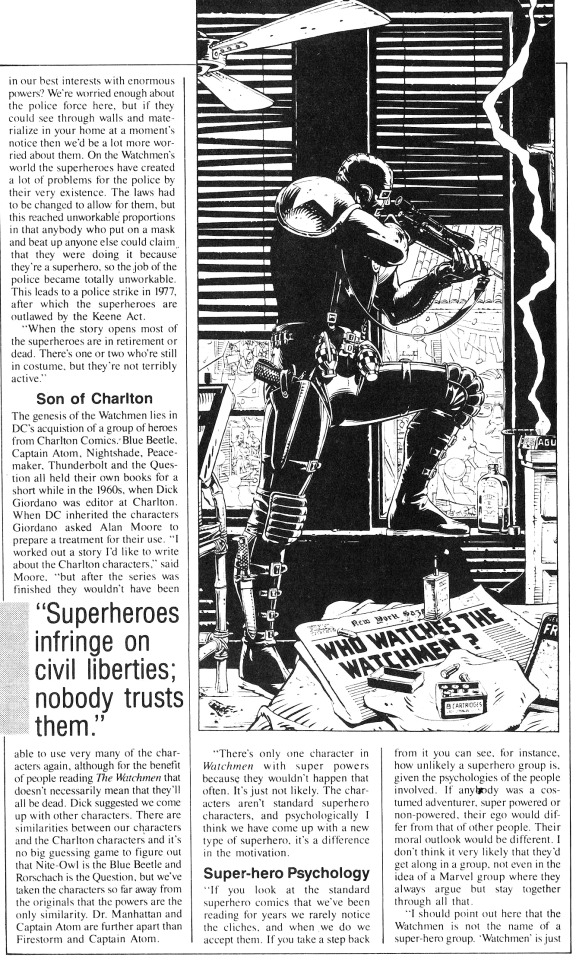

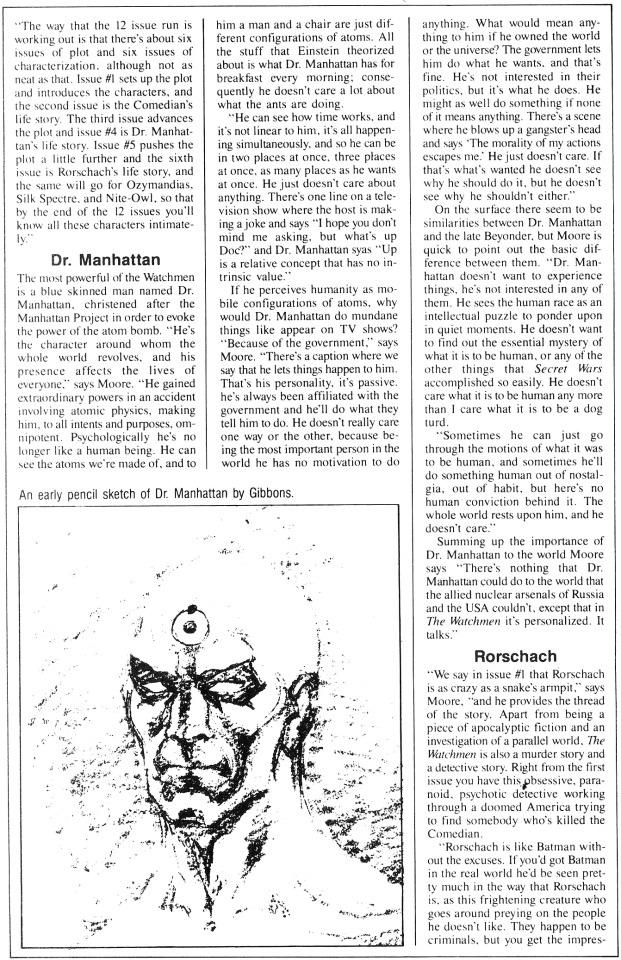
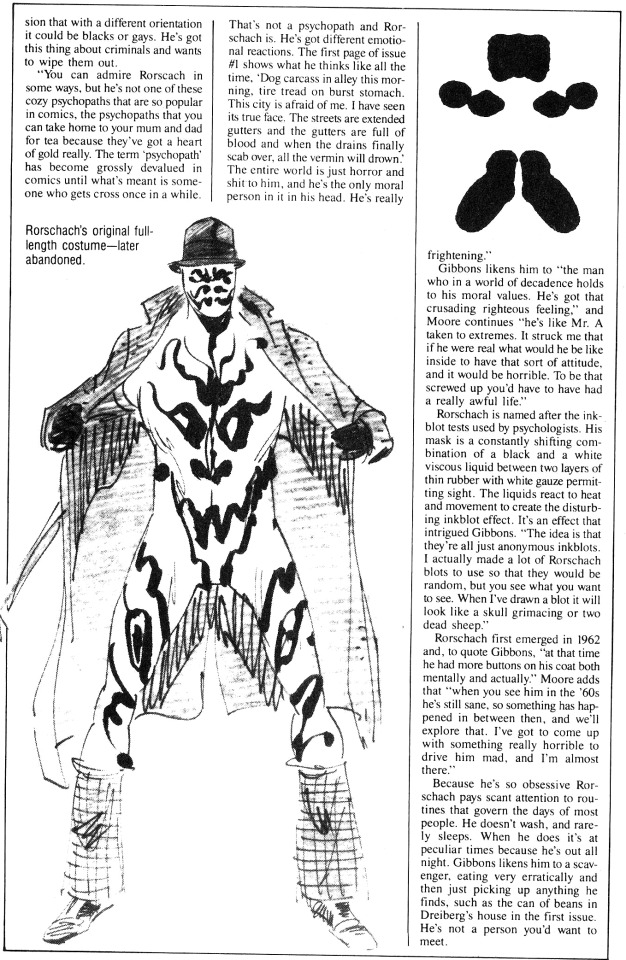

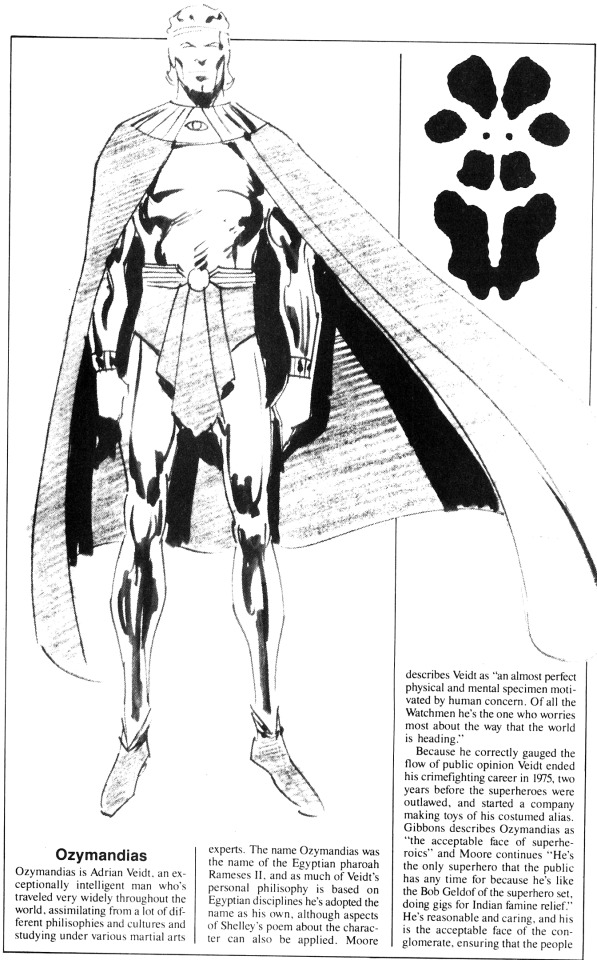
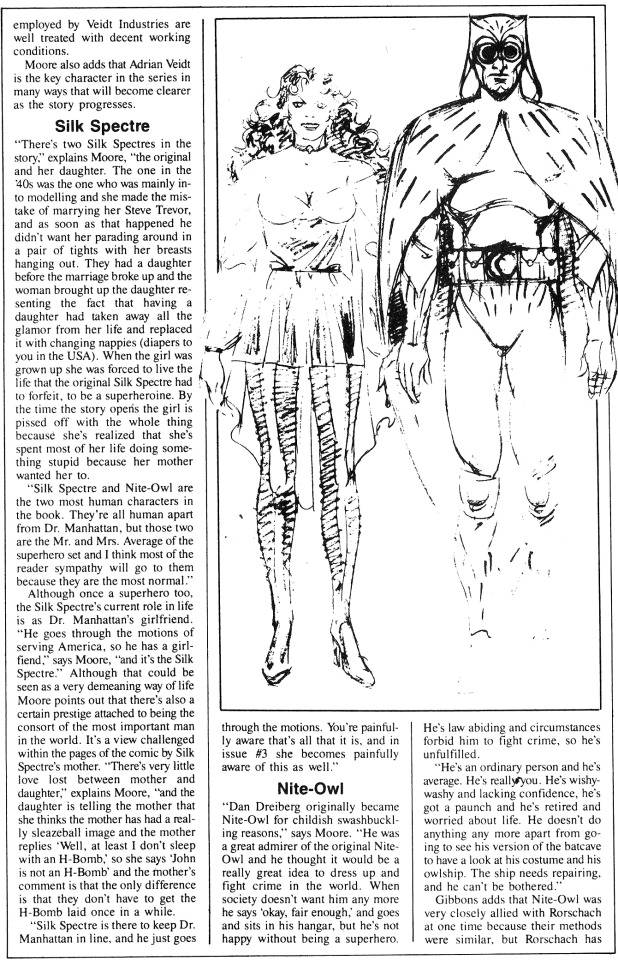
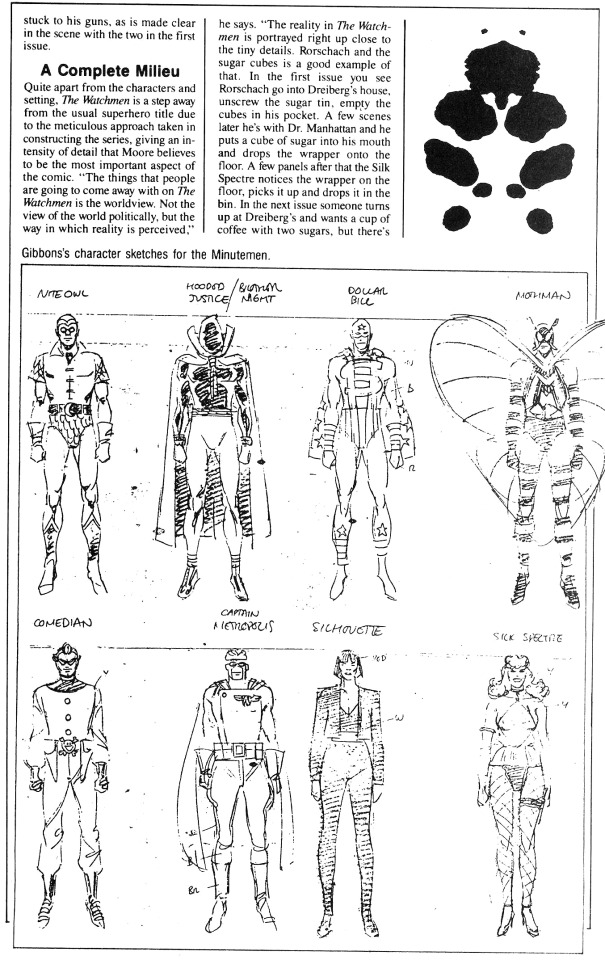
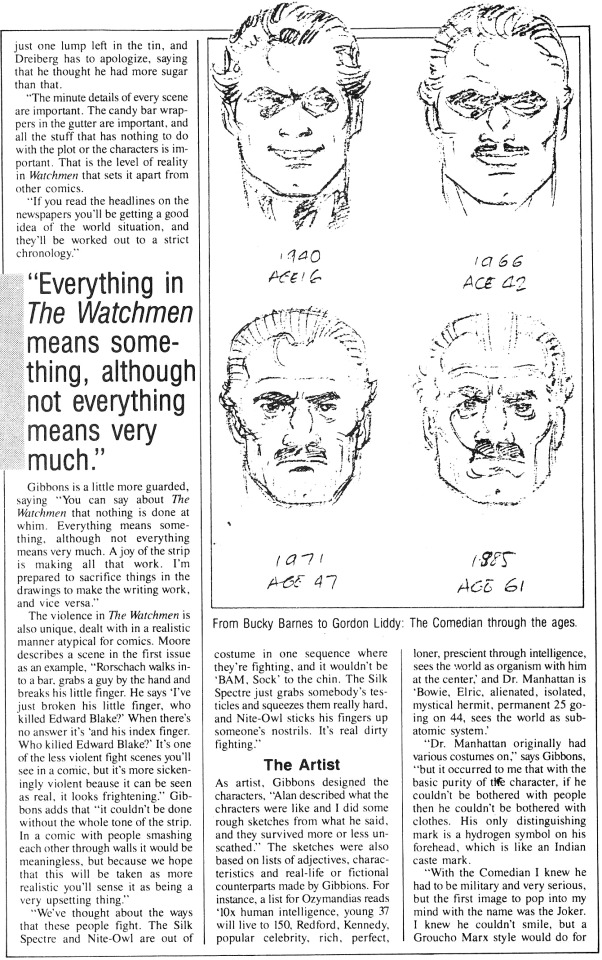
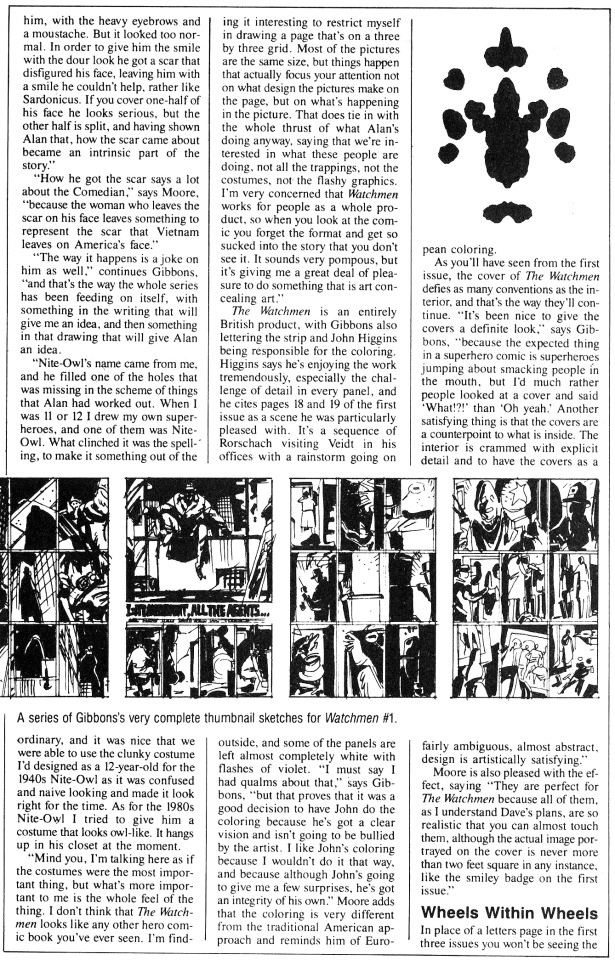
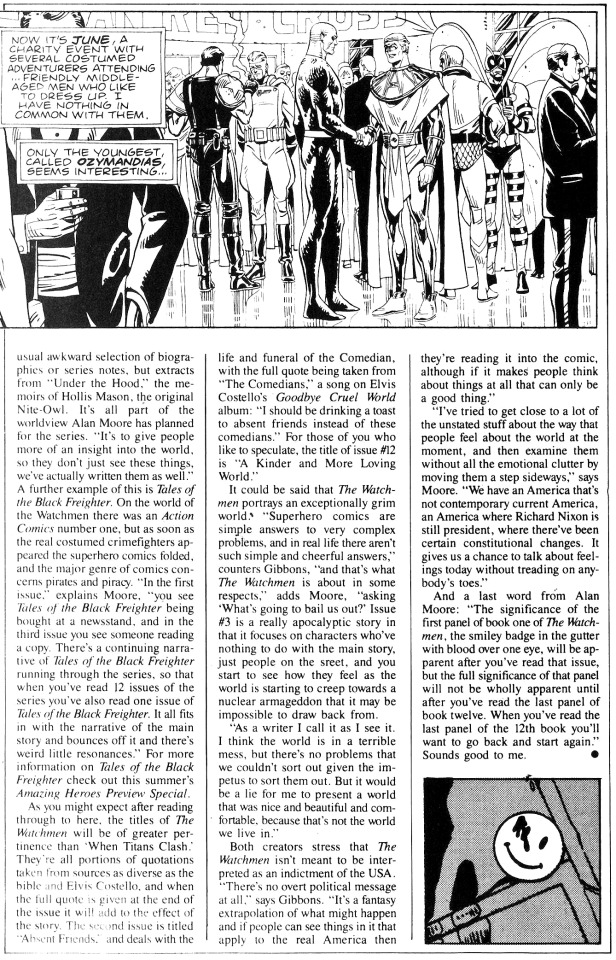
Apart from being a piece of apocalyptic fiction and an investigation of a parallel world, The Watchmen is also a murder story and a detective story. Right from the first issue you have this obsessive, paranoid, psychotic detective working through a doomed America trying to find somebody who’s killed the Comedian.
Dave Gibbons & Alan Moore on Watchmen (1986) in Amazing Heroes #97, June 1986.
#watchmen#watchmen 1986#walter kovacs#rorschach#edward blake#eddie blake#the comedian#adrian veidt#ozymandias#jon osterman#dr manhattan#laurie juspeczyk#silk spectre#dan dreiberg#nite owl#alan moore#dave gibbons#amazing heroes#amazing heroes 1981#dc#dc comics#comic book history#u can reblog#whew and thats the backlog of mags posted
123 notes
·
View notes
Text
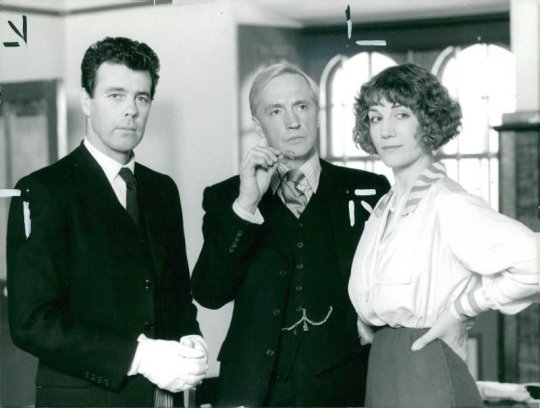
Really, really into all three of these people.
62 notes
·
View notes